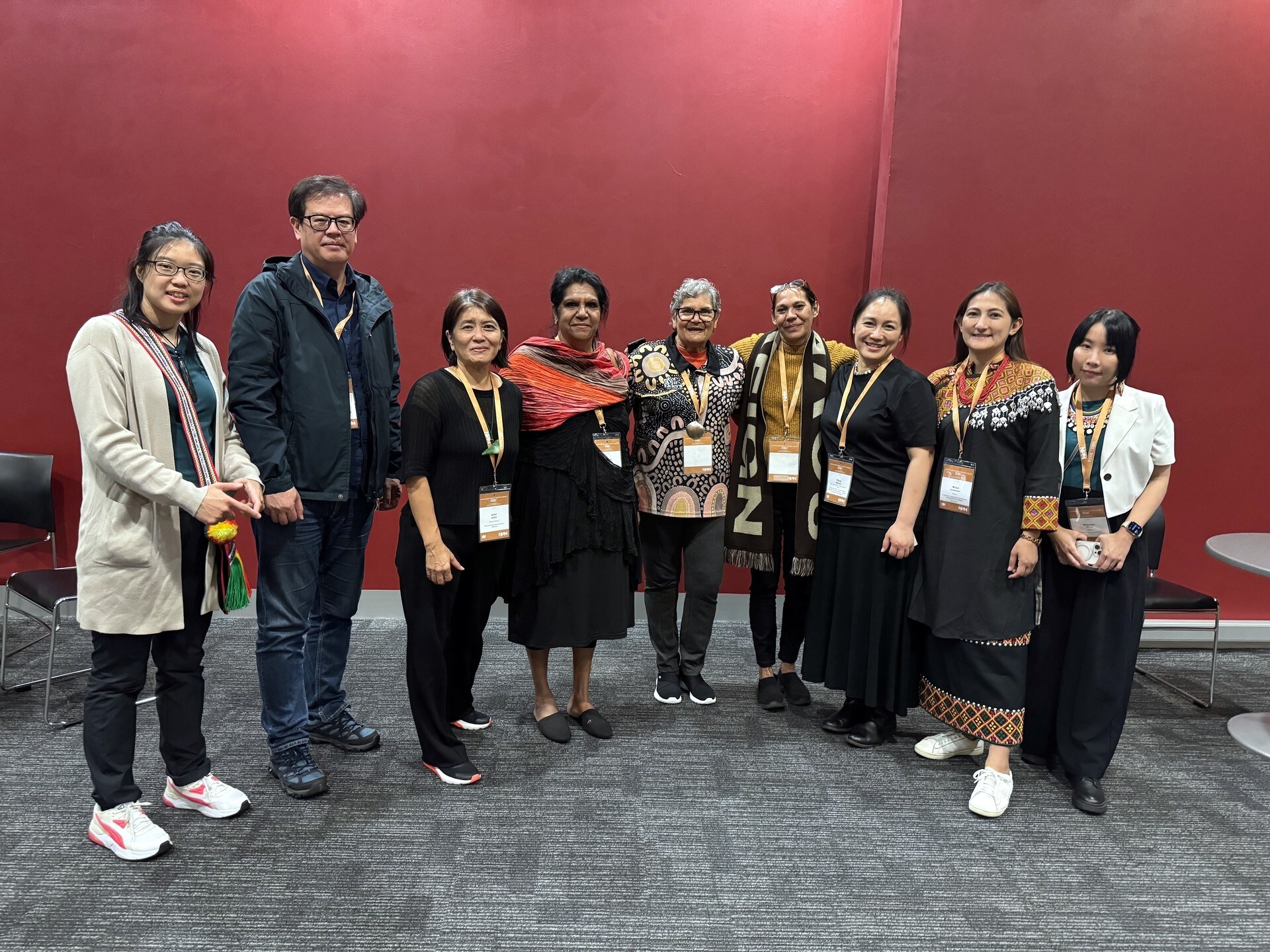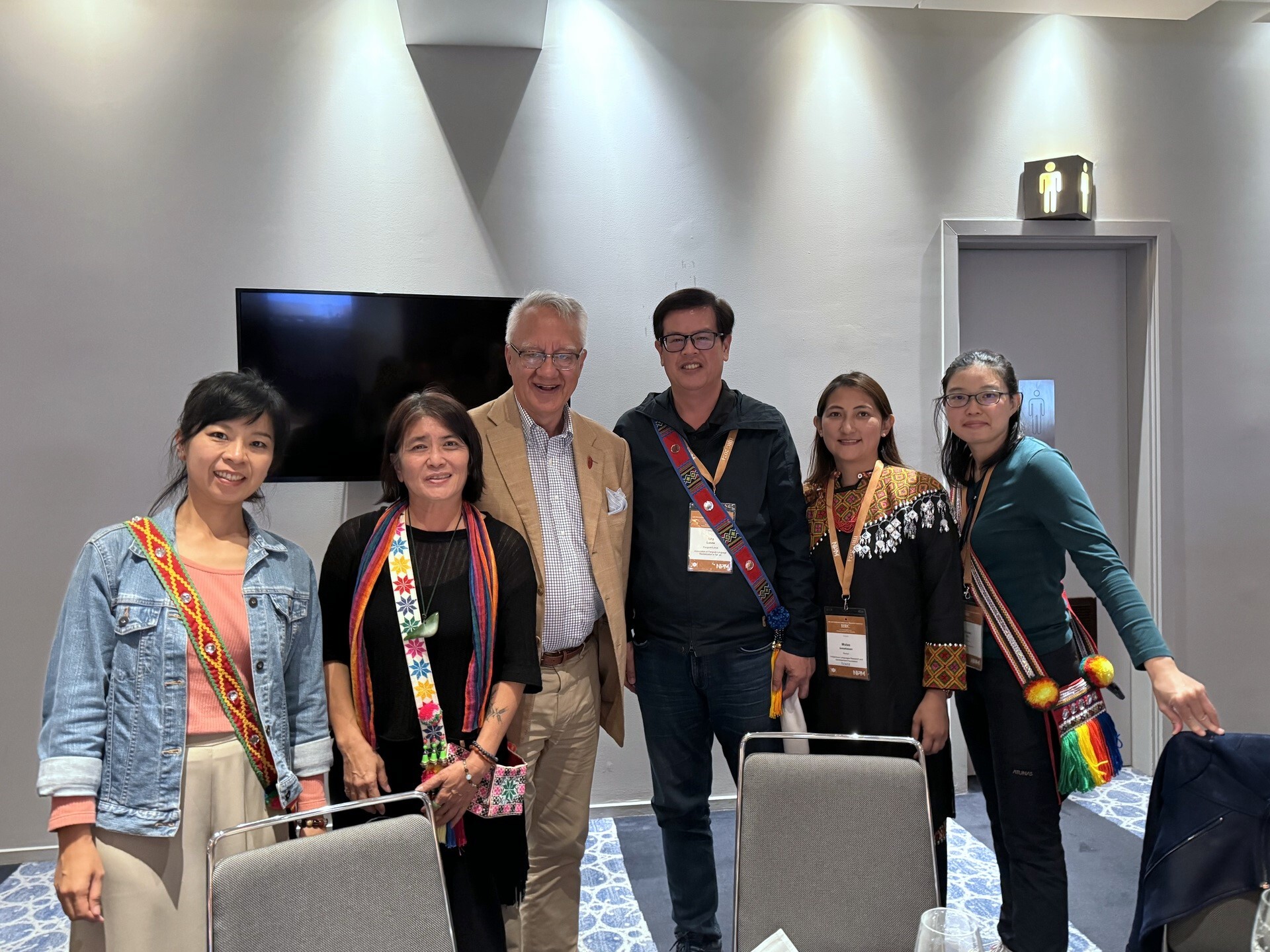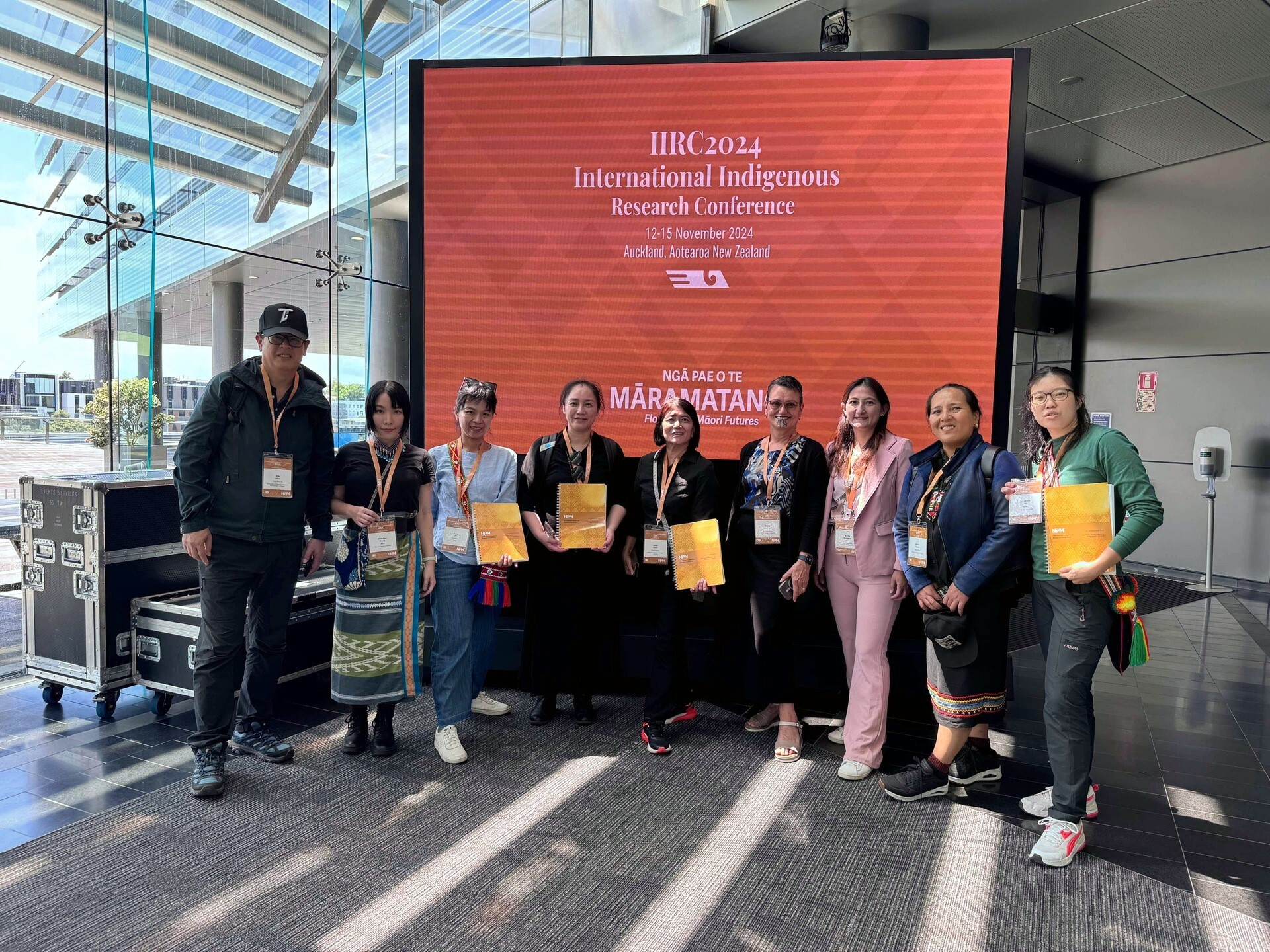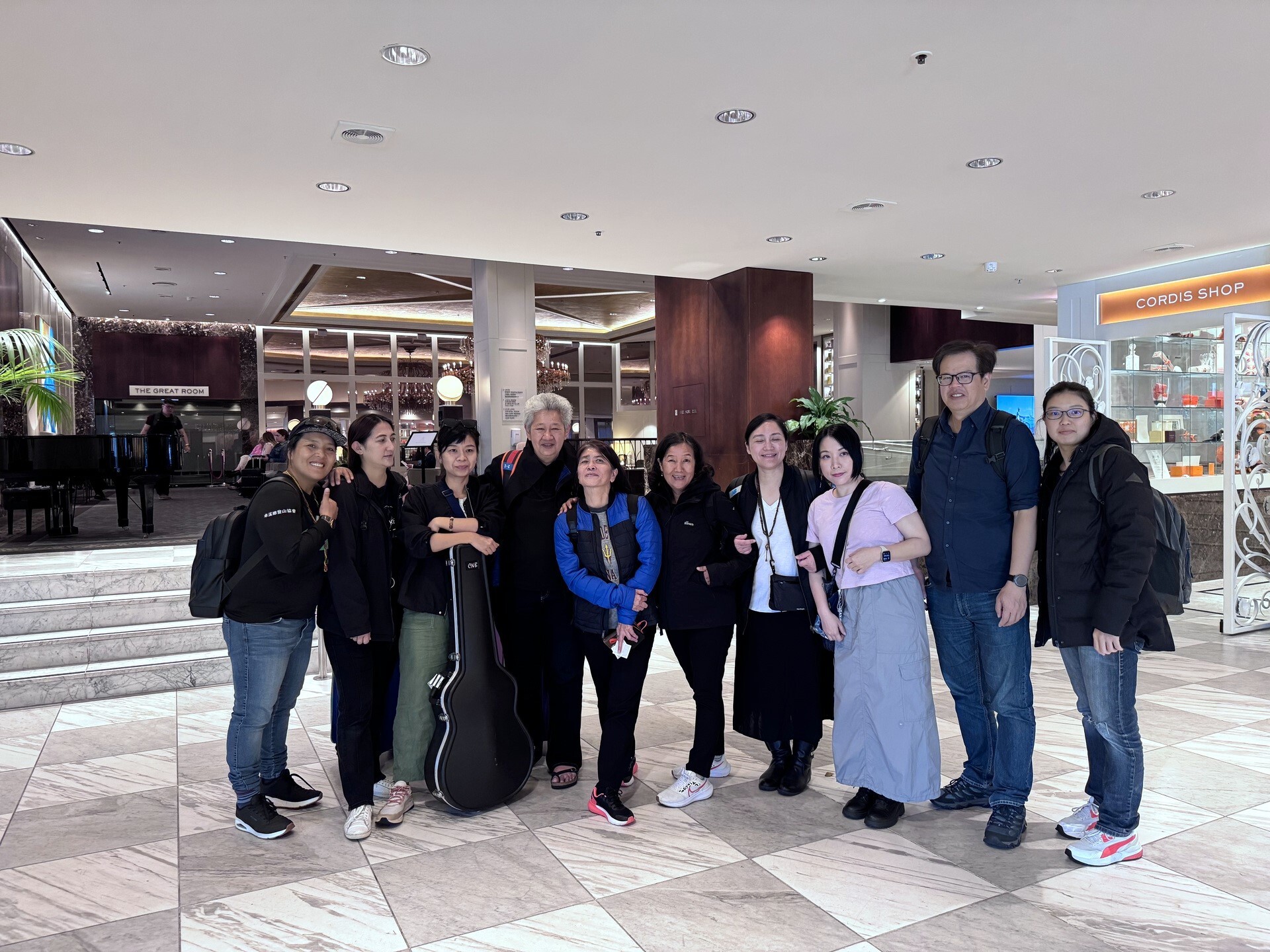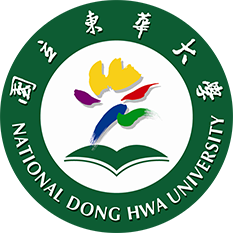Taiwan Indigenous Scholars Showcase Transnational Cooperation and Academic Achievements at the International Indigenous Research Conference in New Zealand
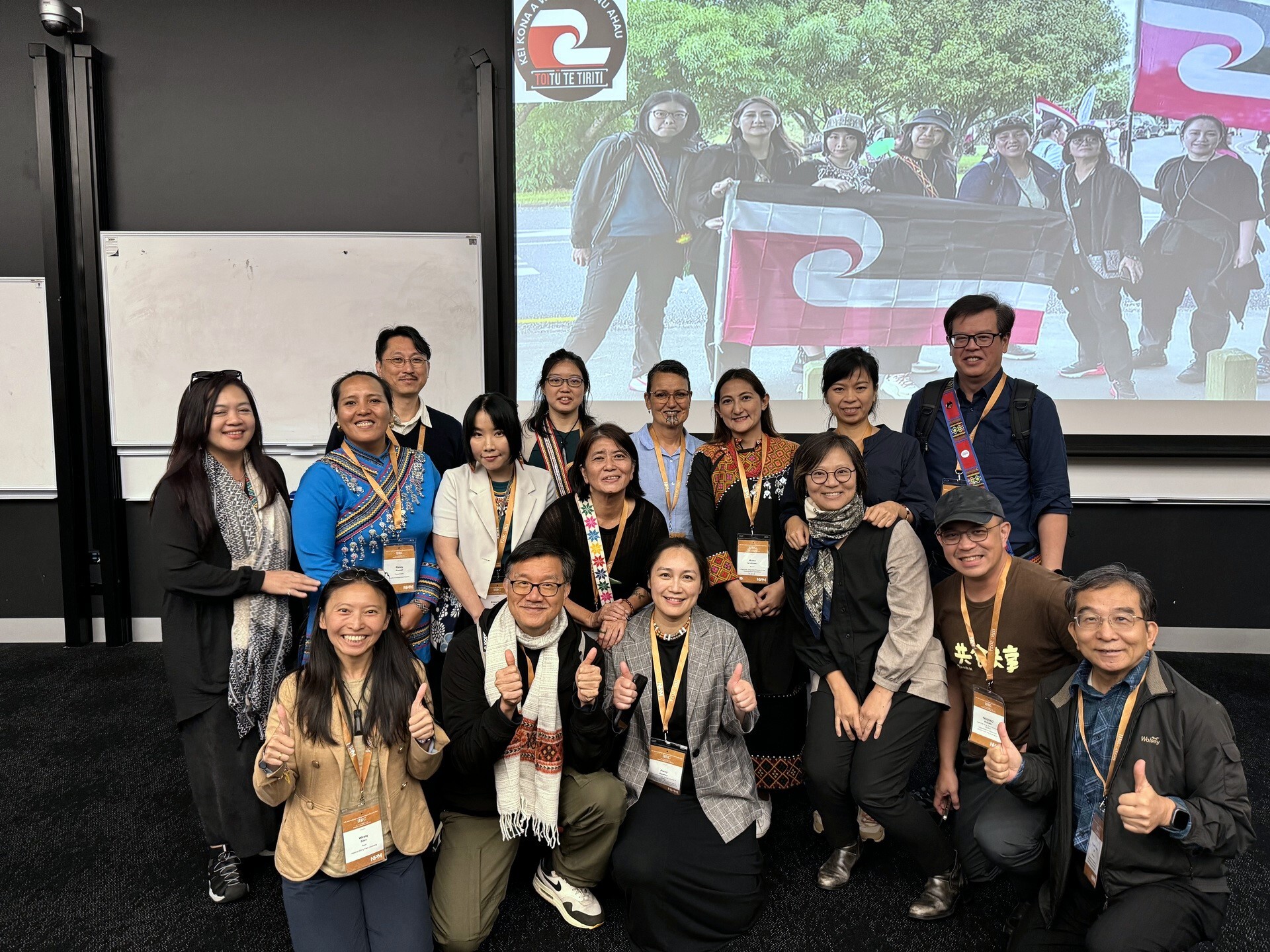
Professor Bavaragh Dagalomai Jolan Hsieh(謝若蘭), Director of the Center for International Indigenous Affairs at National Dong Hwa University, recently led a delegation of Taiwanese Indigenous scholars and graduate students to the University of Auckland in Aoteora New Zealand. They attended the International Indigenous Research Conference(IIRC 2024), organized by Ngā Pae o te Māramatanga(NPM), the Māori Centre of Research Excellence. This year's conference brought together over 700 Indigenous scholars and policymakers from around the globe to discuss strategies for addressing both historical and contemporary challenges faced by Indigenous peoples. Taiwan's delegation, comprising approximately 15 participants, actively showcased their research in diverse topics while emphasizing the importance of international collaboration.
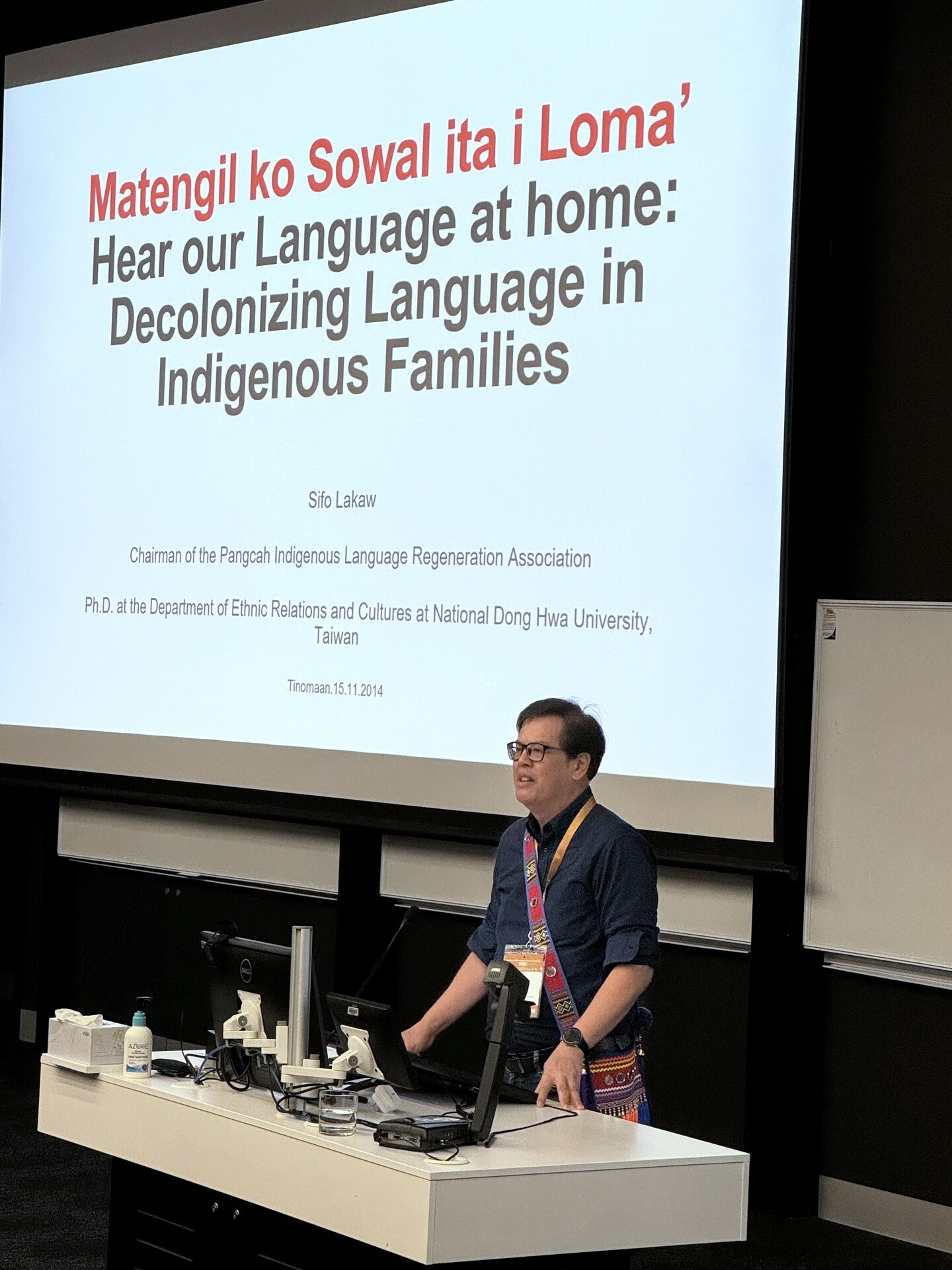
Led by Professor Bavaragh Dagalomai, the cross-institutional Taiwan team focused on two major themes during the conference: Healing Historical Trauma and Pursuing Transitional Justice and Decolonization and Cultural Practices. These themes were explored through a range of topics related to cultural revitalization, language preservation, political participation, new media, and eco-tourism.
Healing Historical Trauma and Pursuing Transitional Justice
The first session centered on addressing historical trauma and transitional justice. Four presenters highlighted the richness and depth of academic research conducted by Taiwan's Indigenous scholars. Dr. Sifo Lakaw, an Amis / Pangcah scholar, delivered a presentation in the Amis / Pangcah language, examining how family language policies and immersive education work together to reverse the loss of Indigenous languages, emphasizing the importance of collaboration between schools and families in language revitalization. Pisuy Bawnay, a Tayal graduate student from Victoria University of Wellington in New Zealand, shared insights into the development of Indigenous research methodologies in Taiwan, advocating for decolonial approaches as viable frameworks for constructing Indigenous research paradigms. Ketagalan doctoral student Yi-Jen TU explored how younger generations use podcast platforms to reconstruct cultural identity while staying connected to modern society. Lastly, Asing Hui-hsin WU examined the shifting gender roles in Indigenous knowledge systems and how artistic creation serves as a bridge for cultural healing, fostering community relationships and knowledge transmission.
Explorations in Decolonization and Cultural Practices
The second session delved into decolonization and cultural practices, focusing on cultural tourism, ritual practices, and political participation among Indigenous peoples. Panay Tana Takisvilainan, a Bunun/Amis graduate student from Victoria University of Wellington in New Zealand, shared how digital technologies and cultural tourism models can foster ethnic identity and achieve economic sustainability. Yangui Young, a Siraya doctoral student, used Cou Peoples' millet rituals and modern festivals as case studies to illustrate how Indigenous peoples assert sovereignty and territorial rights through ritual practices. Mulas Ismahasan, a Bunun/Rukai doctoral student, focused on the participation of Taiwan Indigenous women in politics, analyzing the impact of electoral systems on power distribution and proposing policy recommendations to enhance Indigenous women's representation in politics.
Enhancing Indigenous Awareness Through Academic Exchange and Future Collaboration
Professor Bavaragh Dagalomai emphasized during the conference that this event provided a valuable platform for academic and cultural exchange between Taiwan and Aoteora New Zealand's Indigenous peoples. It facilitated in-depth dialogue on language revitalization, education, and cultural policies. She stressed that self-identity and cultural preservation are global missions requiring solidarity and collaboration among Indigenous peoples worldwide. Through experience sharing and resource exchange, Indigenous communities can collectively address contemporary challenges. She noted, "International dialogue and localized action such as this will contribute to the sustainable development of Indigenous cultures and the establishment of self-identity among Indigenous peoples. This conference not only strengthened cooperation between Taiwan and Aoteora New Zealand in language, culture, and politics but also offered new strategies for Taiwan Indigenous peoples in cultural revitalization and social participation. It further laid the groundwork for collective global collaboration on justice and empowerment for Indigenous peoples."
The research and presentations by young scholars in the Taiwan delegation drew significant attention from conference attendees, leading to lively discussions and exchanges. Conference co-chair Professor Linda Waimarie Nikora particularly noted during Taiwan's sessions that the young Taiwanese Indigenous scholars' outstanding contributions aligned with the conference's theme of "Empowering." Guided by experienced professors, these interdisciplinary young scholars demonstrated innovative perspectives and rigorous analysis, showcasing the uniqueness of Taiwan's Indigenous cultures and their global outlook. She concluded, "Such team efforts inspire the next generation to foster transnational collaboration and address the common challenges faced by Indigenous peoples worldwide."
